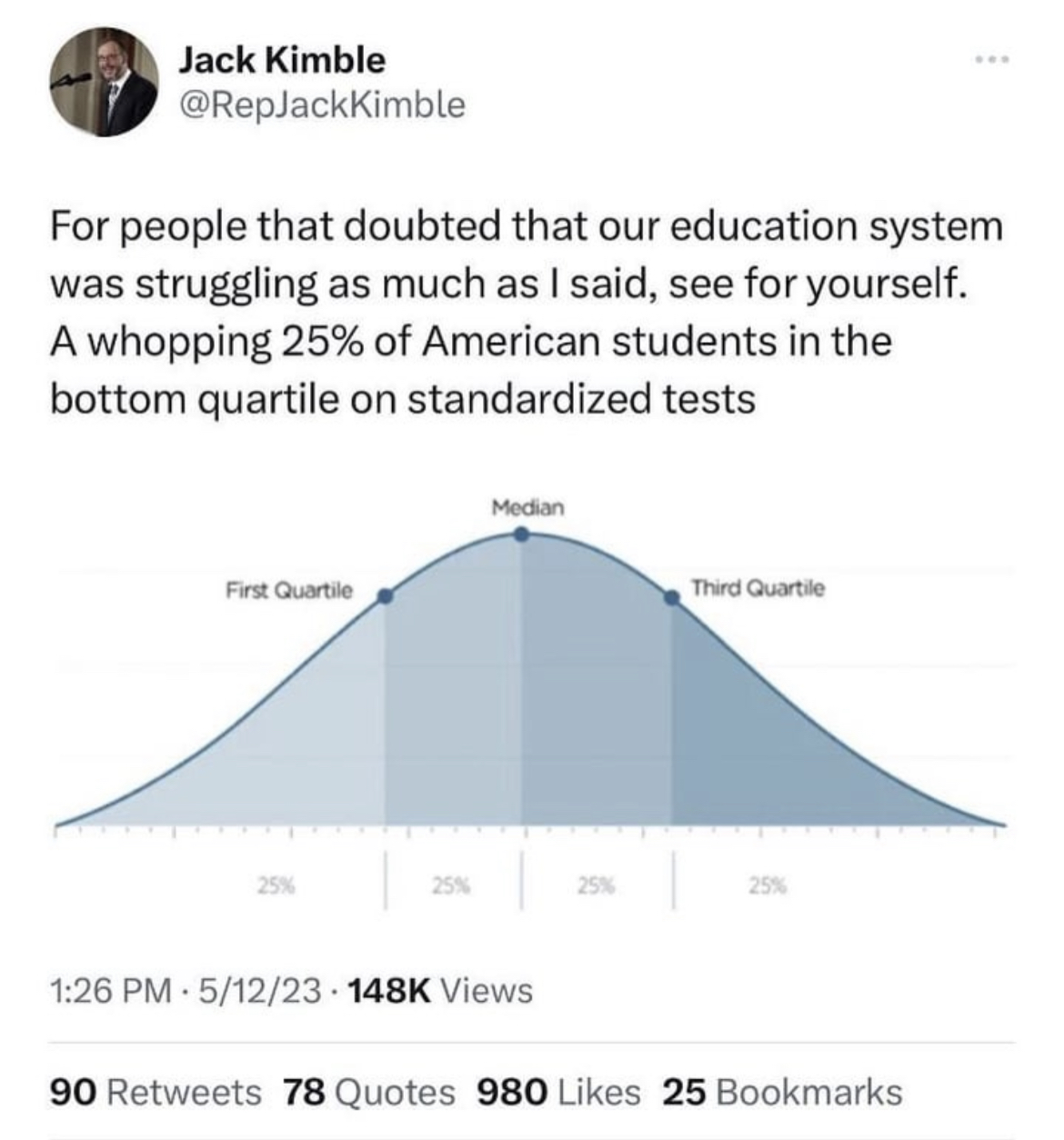this post was submitted on 21 Sep 2023
1285 points (97.8% liked)
Memes
47099 readers
779 users here now
Rules:
- Be civil and nice.
- Try not to excessively repost, as a rule of thumb, wait at least 2 months to do it if you have to.
founded 5 years ago
MODERATORS
you are viewing a single comment's thread
view the rest of the comments
view the rest of the comments

If you took a test as a child, it was probably WISC-V.
Which seems very reasonable to me. This was originally intended to be an aptitude test, not strictly to measure your intelligence.
It's the composite score, and especially the heavy emphasis on it as some innate unchangeable thing, that's the questionable part.
Absolutely, but it's still useful. Allegedly Alfred Binet did not approve of the eventual applications of the test he designed.
This is supposed to quantify intelligence but how are these criteria quantified? Seems like the same fundamental issue
I don't know, when I got tested it seemed like they were testing the right stuff.
I'm pretty sure it's a well-made test that provides fairly accurate results. Even if what they claim to be measuring in each category isn't reflected in the test, it is, at the very least measuring the abilities required to take the test and that exactly.
It seems pretty straightforward to see how good a kid is at solving a puzzle, right?